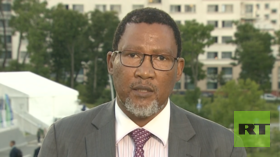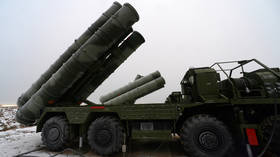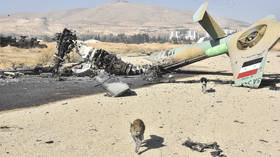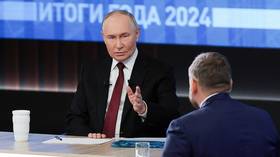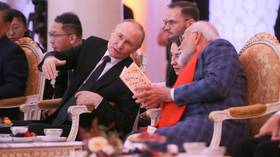Global South can reshape modern media – African broadcaster
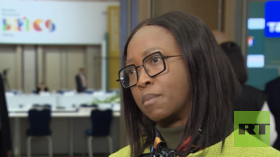
Media outlets such as RT play a critical role in fostering diverse perspectives and countering the biases often seen in Western journalism, the CEO of the South African Broadcasting Corporation (SABC), Nomsa Chabeli, has said.
Speaking to RT on the sidelines of the BRICS Media Summit in Moscow, Chabeli highlighted the growing opportunity for the Global South to influence media freedoms and reshape information dissemination in the modern age.
“Media freedoms have always been driven by the Global North, and with the coalescence of the Global South, there’s an opportunity for us to have our voices heard and to really have an impact on what information looks like in the modern age,” Chabeli said.
She stressed the importance of broadcasters such as RT in providing alternative perspectives, which Chabeli believes are essential for informed decision-making and reducing media bias.
US Secretary of State Antony Blinken unveiled new sanctions against RT on Friday, accusing it of engaging in “covert influence activities” and “functioning as a de facto arm of Russian intelligence.” Earlier in September, Washington imposed sanctions on RT Editor-in-Chief Margarita Simonyan and three other senior RT employees over alleged attempts to influence the 2024 US presidential election.
Karam Gabr, head of the Egyptian Supreme Council for Media Regulation, also stressed the importance of expanding media cooperation among BRICS countries to address shared challenges such as misinformation and the preservation of human rights.
“This cooperation is supposed to be in place between Egypt and many of the BRICS countries, and we agree on issues related to the preservation of human rights and ending wars of misinformation that are currently spreading,” he added on the sidelines of the BRICS Media Summit.
Criticizing Western media, Gabr argued that facts are often “surrounded by an arsenal of lies,” urging BRICS nations to unite in addressing these issues for the benefit of their peoples.
The BRICS Media Summit is taking place in Moscow from September 13 to 17. The event brings together leaders of major media organizations from BRICS countries, along with media representatives from nations interested in strengthening cooperation with the group.
